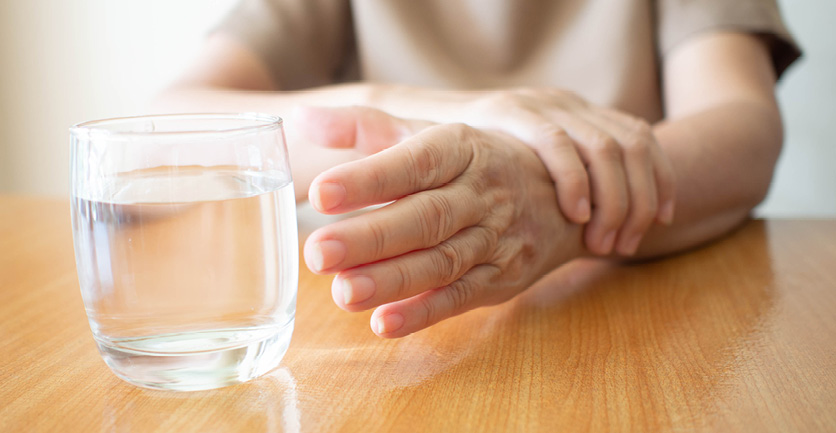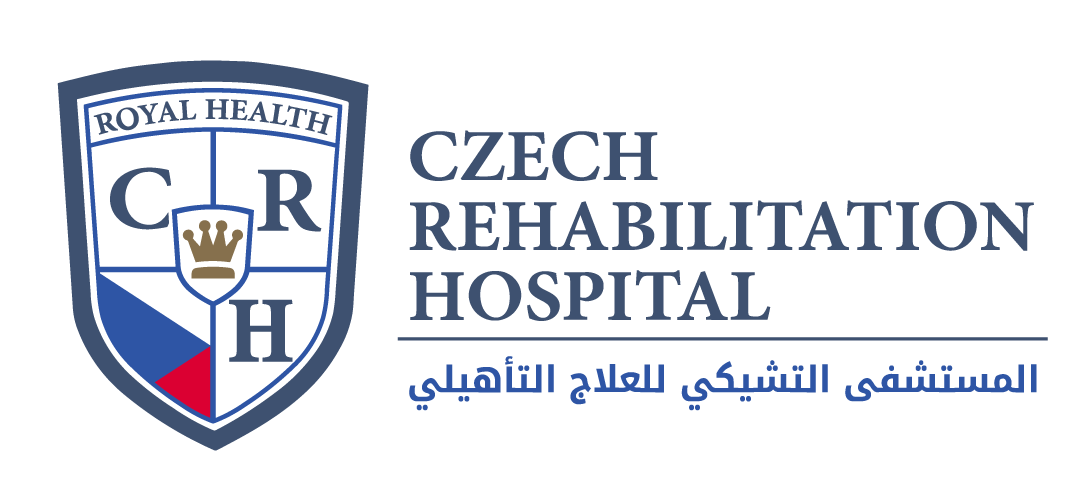
Parkinson’s disease is a progressive neurological condition, resulting from the degeneration of dopamine-producing neurons in the basal ganglia, deep in the lower region of the brain. The role of the basal ganglia is to orchestrate the performance of well-learnt, voluntary and semi-automatic motor skills and movement sequences. Dopamine also contributes to other processes, such as maintaining and switching focus of attention, problem solving and decision making.
Our Approach
At Czech rehabilitation hospital, our interdisciplinary team of rehabilitation specialists focuses on individual needs and rehabilitation goals. We understand that each patient brings a unique set of symptoms. Pain may occur when sitting, standing, walking and/or going about daily chores. Pain may be in the lower back and/or or extend into the legs. Some may also experience numbness or tingling in the leg or foot. And whether your pain is short-term or more chronic in nature, we will work closely with you and tailor your treatment accordingly.
Treatment, Technology & Research
At the hospital, a variety of services for treatment and rehabilitation of both the motor and non-motor symptoms of Parkinson’s disease are available. Clinical guidelines suggest a multi-disciplinary approach is key in the management of Parkinson’s, therefore we work very closely with other health care professionals.
Specialized services
Physiotherapy:
At the hospital, as each individual responds differently to the condition, our specialized physiotherapists aim to individualize treatment.
Some of the physiotherapy treatments we offer can help to:
- Reduce rigidity and improve posture through stretching and postural re-education
- Increase speed and amplitude of movements through muscle strengthening and mobilization exercises
- Teach ‘cueing strategies’ which will help a great deal with the quality of movement
- Increase mobility through assessment of different mobility aids
- Reduce muscle stiffness, spasms and pain through stretching programmers
- Reduce postural instability and balance problems through core stability exercises and balance training
- Reduce the risk of falls through balance work, gait re-education and strengthening
- Increase functional independence and quality of life
- Advice on fatigue management
- Combine stretching, aerobic exercise, strengthening, tai chi and relaxation techniques through weekly exercise classes
Occupational Therapy:
At the hospital Our specialist OT’s aim to improve areas of personal care, work or leisure that are becoming difficult.
This can be achieved through:
- Functional activities independently or in groups
- Cognitive measures to assist with memory difficulties
- Assessment of function in your own environment and establish any needs for equipment, adaptations, or further rehabilitation
- Hand therapy including splinting and exercise programmers
- Assessment and treatment of cognitive deficits
- Strategies to improve problem-solving abilities and memory
- Handwriting techniques and adaptive equipment
Speech and Language Therapy:
At the hospital Our specialist SLTs will help persons with Parkinson’s disease on maintaining and improving as much of their communication and swallowing abilities as possible.
These goals can be achieved through:
- Develop strategies and exercises with persons with Parkinson’s disease and their families to help with volume and speed of speech, breathing, facial expressions and articulation.
- Use of specific treatment techniques such as Pitch Limiting Voice Treatment/Lee Silverman Voice Treatment when indicated.
- Helping persons with Parkinson’s disease adapting their communication styles to the different settings they communicate in, for example, if they work in a very noisy office where a soft or quiet voice is difficult to hear, or if they work in a very quiet environment that might not lend itself to speaking loudly.
- Assessment and treatment of swallowing disorders that the persons with Parkinson’s disease may experience.
- Help persons with Parkinson’s disease navigating and perhaps using the latest technological options, such as a computer, voice amplifier or an app (computer applications or programs designed to do a specific action) on their mobile phone or tablet or advising them with the augmentative and alternative communication devices.
Outcomes
Studies show that patients treated in an acute rehabilitation hospital achieve better outcomes than those in other care settings.We will achieve in time that a greater improvement during their stay and a higher level of functional independence upon discharge , based on national benchmark that measure criteria such as locomotion, cognitive ability and activities of daily living


